Michael's RPG Shelf: Tips For New and Novice Roleplaying Gamers, Part Six - Character Concepts To Avoid
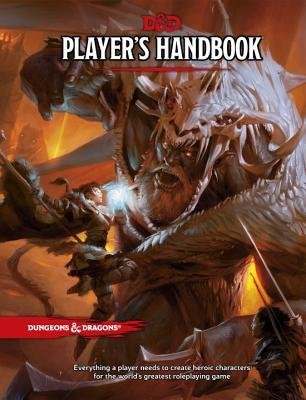
I've been involved in roleplaying games for about thirty years now, on both sides of the GM screen. While I'm the furthest thing from an expert in the field, I do feel long-term exposure has taught me a few things along the way, and I enjoy passing those on to others. There are tons of topics and options to explore, but I feel that perhaps the most important is remembering that mixture of excitement and fear when playing a game for the first time, when I was still unfamiliar with most of the rules and trying to find my place in the world as a player. With that in mind, I'd like to offer up a few tips for new and novice players that will help you navigate those twists and turns and hurdles you won't realize are in your way until they're almost smacking you in the face. Since D&D is the game I'm most familiar with, the examples I'll use will all come from this particular system, but many of them are applicable across a wide variety of products and systems.
You Want To Play What?!
Fifth Edition has done more to expand character possibilities than any other incarnation of the rules system. By doing away with the negatives associated with various races and classes in the past (Half-Orc penalties to Charisma, Halfling penalties to Strength, and so forth), the rule set has blown open the options for players to create some truly awesome concepts for their PCs. Despite this, there are still some character types you should immediately cross off your list unless you're playing in a very specific type of campaign, the rest of the players are OK with you taking on the role, or you've been role-playing long enough to make these sorts of things work. Because this is a guide for novice players, I'm going to assume you're in the target audience, and advise you to steer clear of the following archetypes.
#1: The Loner
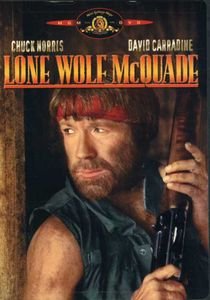
If you and your DM are running a single-player campaign, this character type can totally work. But if you're playing in a more traditional campaign, where you'll be at the table with other gamers, then you really want a character who plays well with others.
Now, there's a difference in playing a PC who is competent and self-sufficient enough to survive without the help of other people, and playing a Loner. Barbarians, Druids, Fighters, Monks, Rogues, and Rangers all have a streak of self-sufficiency baked into them by default. After a few thousand XP, just about everybody should be able to navigate the mundane world without needing to hire bodyguards. A self-sufficient PC understands that while it's important to know how to survive on one's own, the benefit of a group to watch one's back and compensate for one's weaknesses cannot be overstated.
The Loner, by contrast, is drawn to walk a path of solitude, eschewing the friendships that form naturally over time. If they are involved with a group, they'll stay on the periphery, rarely contribute to discussions, and often seem lost in their own little world. Loners aren't team players, and that's the problem.
It's OK to be slightly mysterious--hell, every character should seem a little strange to every other character, especially given the diversity of racial and class combinations on offer. It's even OK to be more of an observer than an actor--some new players find it harder to step into the role they're personifying than others. It's even OK to have a secret you're trying to keep from the party...as long as you tell the GM about it. If nobody knows about your cool secret, and your character bites the dust, then nobody's going to care except you.
Dungeons & Dragons is meant to be a shared experience, which means you need to be open to working well with others. If your character concept is most exciting to you when he's going off and doing his own thing, that's a sign that not only are you probably not going to have a lot of fun in a multi-player campaign, but also the rest of the players will be annoyed with your inability to contribute to the group.
The biggest problem with Loners archetypes is that it's so hard to get away from them when it comes to entertainment. Most major action movies cast the main character as someone who plays by their own rules, goes against the grain, and gets the job done anyway. Chuck Norris, Harrison Ford, Sylvester Stallone, Jean-Claude Van Damme, Mel Gibson, and Arnold Schwarzenegger all personified this type of larger-than-life protagonist who shoots, swears, and jokes his way through every scene. On the silver screen, these are fantastic actors fulfilling our own fantasies about kicking so much ass that donkey stocks take a tumble on the futures market. But leave Mad Max, Rambo, and Indiana Jones for the NPCs. During character creation, think The Expendables or Predator, not Commando or Blood Sport.
#2: The Average Joe
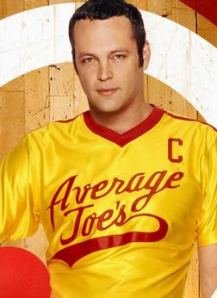
If your D&D campaign revolves around playing dodge ball with Vince Vaughn, then you should absolutely do whatever it takes to become an Average Joe. If it doesn't, then pay attention.
It's a cardinal rule of pen-and-paper RPGs that nobody can be good at everything except the Game Master (Hello, Ladies...!). Whether you're rolling dice, buying skills from a point pool, or assigning numbers to abilities off a provided list, the fact remains there will be some things your character is just plain going to suck at. What's worse, a lot of those things she's going to suck at are likely to be extremely useful skills for someone to have. D&D is no exception, and while your choices during character creation are limited, whenever a PC earns enough XP to go up in level, the player faces a choice: take a level in your current class, or go multi-class.
While most players are adept at judging their character's potential growth, Average Joes are the result of players who obsess over what their PC can't do, instead of what they can. And while it can be useful to have a multi-class character in the party, or to pick up another weapon specialization, or grab a Feat that gives you proficiency in a couple more skills of your choice, if you build your character with the thought that she'll one day be able to do everything, you'll wind up with one who can't do anything. At least, not as well as the rest of your more-focused party.
Average Joe types use their ability bonuses at level-up to bring low stats up to average instead of bringing great stats up to super-human, because they're scared of that -2 beside their Wisdom. That isn't to say you should never bolster a low score, but if you do it should only be Constitution, because deficiencies in literally every other ability can be negated by the presence of other party members. If you're in a party with a Barbarian and a Fighter, don't worry about a low Strength score--you have a different job to perform. Penalty on Dexterity? Who cares? Let the Rogue and the Monk handle the more delicate tasks. Concerned about your low Intelligence? Well, unless you're a spellcaster it probably doesn't matter. Ditto Wisdom unless you're a Cleric or Druid, and Charisma unless you're a Paladin or a Bard.
The point is, you'll never be good at everything, and if you try, you won't live long enough to get good at anything. Plus, having a deficiency in one or more areas can make you a far more interesting character from a role-playing perspective. It can be fun to play a not-so-smart Halfling, or a powerful Wizard who keeps tripping over his own two feet. Focus on becoming great at two or three things, and let your party fill in the gaps.
#3: The Over-Specialist
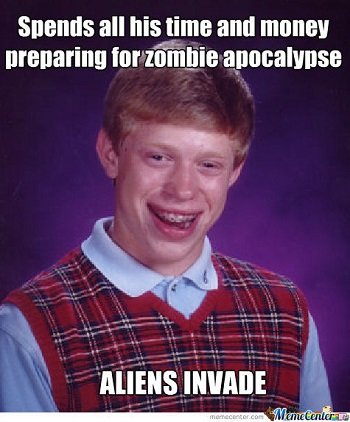
Unlike the Average Joe, who creates a terrible character by trying to make one who can do everything, the Over-Specialist creates a terrible character by trying to make one who is supremely effective at one laser-focused specific task to the detriment of all others.
The Over-Specialist is hard to create at first level, so this is more a concept that develops over time. If your PC is continually focusing all his skills, feats, and abilities to maximize their advantage under one specific circumstance to the exclusion of all others, their "times to shine" will be fewer and further between than those of other, more rounded characters. Consider the Wizard who loads up on spells dealing heavy damage to a single target--this character might be brutal in a fight against a lone adversary, but part of the Wizard's job in combat is crowd control. He'll do fine when there's a brawl at hand, but outside of combat situations where there are very few targets, he's practically useless. Spells like Detect Magic, Identify, and Knock are all useful after blades are sheathed and arrows returned to their quivers, but our Wizard is worthless until he can take a long rest and re-arrange his known spells. At higher levels, a Wizard who pursues the path of a Pyromancer is extremely useful when going up against Frost Giants and Yeti, but as soon as a Red Dragon or Fire Elemental shows up, they might as well tuck their hands into their robes and get acquainted with the Dash action for all the good they'll do in a fight.
There's nothing wrong with being really good at something, just strive to make that something as broad as possible. Being really good at fighting in general produces a superior character to one who specializes in destroying Gelatinous Cubes. Don't be the Bad Luck Brian of your party.
#4: The Misfit
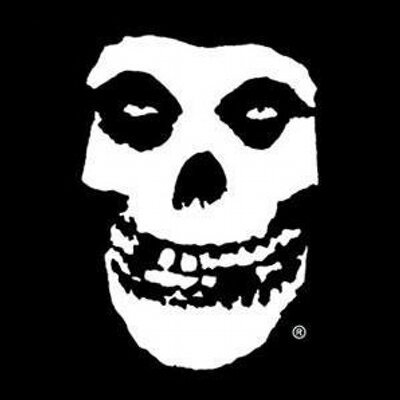
A Misfit is usually the result of a communication failure between the DM and her players, or the players among themselves, but it can also be the result of stubbornness or ignorance on the part of a single player. The difference between a Misfit and a Loner is that the Misfit is purposefully designed to stand out in some way from the rest of the group...in a way that helps no one. In a group comprised of Good-aligned PCs, one player decided to roll up a Chaotic Evil Assassin; you intend on running an Evil campaign but have a player who refuses to play anything except a Paladin devoted to St. Cuthbert. Guess what: you've got a Misfit.
That doesn't mean any character playing outside the main strengths of the group is a Misfit. Consider Bilbo Baggins in The Hobbit: he sticks out like a sore thumb in the middle of a group of thirteen battle-hardened and combat-ready Dwarves, but he's still useful to the group because he brings certain skills like stealth and a cunning wit that the rest of them lack on the whole. A Misfit, on the other hand, is a character whose purposes, skills, and focus run counter to those of the rest of the group. Bilbo was a fine fit with the Dwarves because he filled a useful gap in their power structure. If his talents involved seafaring and speaking with dolphins, on the other hand, he'd have been a complete Misfit, not to mention a terrible protagonist.
Misfits generally fall into one of two categories: the 'fish out of water' sort, and the 'disruptor' sort.
A fish-out-of-water Misfit is a PC not only out of his comfort zone, but entirely unsuited to the task at hand. A Barbarian with a hair-trigger temper is a Misfit addition to the party if the campaign goal is minimal combat and maximal stealth. If your players are more interested in city-based adventures of political intrigue, a Druid is definitely going to feel like a fifth wheel. Other examples are characters who don't share a common language with the rest of the party (like a Tiefling who only understands 'Infernal'), or who focus on skills with limited application to the general setting of the game. Fish out of water normally aren't created to deliberately be such, they're just made by players who didn't know any better, or who want the challenge of role-playing a different sort of hero. They can work, but they're unsuitable for new players.
A disruptor, on the other hand, is almost always a deliberate choice on the part of a player. Like the aforementioned evil Assassin in an otherwise Good-aligned party, the rallying cry of the disruptor is, "Don't take it personally! I was just playing my character." While this may be true, the fun of the group must take precedence over the fun of one particular player. It's hard not to take it personally when the character you've invested hours of time and thought into is backstabbed in the middle of combat, or has her belongings rifled through in the middle of the night, by another member of the party who deliberately chose to do so. Disruptors demand to be the center of attention, and they will be...up until the player finds himself dis-invited from further gaming events. If you ever screw with another party member and defend yourself with the excuse that you were "only playing my character", then I (and any other sensible DM) will boot you from the playing table so fast you'll think I cast Time Stop.
The other form of disruptor is the PC who becomes more powerful than, or otherwise overshadows, the rest of the party. Usually this happens by accident: the PC draws a few lucky cards from a Deck of Many Things, and suddenly they've got their own castle, one million gold pieces in treasure, and they're now level seven when everyone else is level three or four. When every PC is on relatively even footing, it's easy to maintain balance inside and outside of the game. When one character suddenly eclipses the rest for some reason, a disruptor is born, and that can spell doom for your current campaign even if no one intended it to happen.
So those are some of the character concepts I highly advise novice players against adopting for their PCs. Feel free to share your suggestions and examples in the comments! Thanks for reading, and until next time, may all your hits be crits!
Congratulations @modernzorker! You have completed the following achievement on the Steem blockchain and have been rewarded with new badge(s) :
Click here to view your Board of Honor
If you no longer want to receive notifications, reply to this comment with the word
STOPDo not miss the last post from @steemitboard: